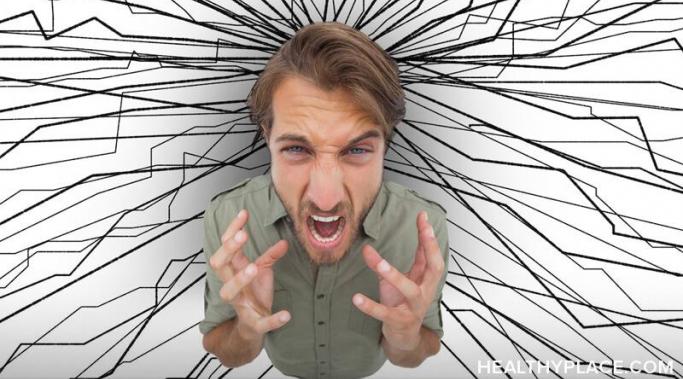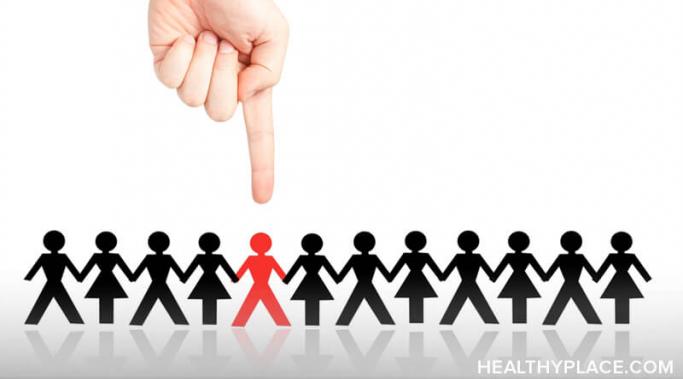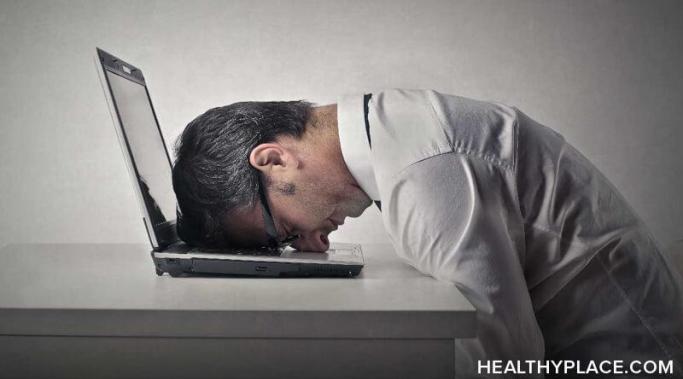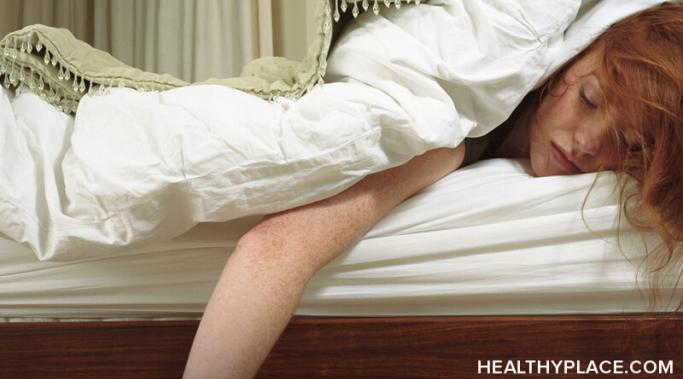I likely don’t need to tell you bipolar depression is hard, and I probably don’t need to tell you concerted effort – trying hard – is difficult, too. But the thing is, bipolar depression management (or bipolar management in general) requires trying hard all the time. The effort of this is not something to be underestimated. This is a tall order. Trying hard with bipolar depression requires such energy and focus it feels impossible to do it all right all the time in spite of the need to do it constantly.
Understanding Mental Illness
I am a person with extreme willpower and this helps my mental illness. I know this. It’s obvious. Willpower affects every aspect of my life, of course. But people may think I have no willpower because of my mental illness. This is because people overestimate how much willpower can help a mental illness.
There are so many things that I want to do during the day but I can’t do them due to the invisible barrier of bipolar disorder. When I try to explain that to people, it’s almost impossible. I just can’t do things. It’s like I’m weighed down with 1000s of pounds. There’s an invisible barrier that bipolar disorder erects between me and what I want to do.
There are many things you have to cope with when you have bipolar disorder and one of those things may be intrusive thoughts. Intrusive thoughts are thoughts that are beyond your control and can become obsessions. But they are thoughts you do not want and, certainly, obsessions you don’t want to have. Here are some ways to cope with intrusive thoughts in bipolar disorder.
Because of my bipolar disorder, I fake happiness – a lot – like, all the time; like, every time I leave the house. This is due to several factors but, obviously, one of the primary ones is that I, typically, am not actually happy. I am, typically, depressed. And people don’t like that. People don’t like constantly-depressed people. So my bipolar disorder forces me to fake happiness.
People often say to those suffering with bipolar disorder, “Others have it worse than you.” This is not a helpful statement. We know that others have it worse than us. In fact, others with bipolar have it worse than us; that’s just math. But the fact that others have it worse than us is absolutely irrelevant to our suffering with bipolar.
I write about some things that can trigger those with depression so it’s important for readers to know how to deal with depression triggers in blog posts. Understanding how to deal with depression-triggering blog posts can protect you from negative emotional effects and worsening symptoms.
When I work too hard, I find myself in too much pain thanks to bipolar disorder. I push through when I should stop, and work and work only to find myself waking up one day so sick I can barely move. Work is kind of the bane of my existence. Necessary for existence? Yes. Pleasant? Not in the least. This is eminently clear to me right now as I woke up in extreme pain thanks to bipolar and working too hard.
Living with bipolar disorder is chock full of uncertainty. You never know when you might be well. You never know when you might be acutely depressed. You never know when mania might make you psychotic. And you never know when it might be the day when you need the hospital. If that isn’t uncertainty, I don’t know what it. And while everyone lives with uncertainty, the uncertainties that come with bipolar disorder are so very hard to live with.
Travel can make my bipolar disorder worse. Knowing this can make me fear travel. It's not that I don't like travel; theoretically, I like travel. I’ve done quite a lot of it, actually – I’ve been to 12 countries. Nevertheless, the older I get, the nastier my bipolar becomes and the more my bipolar disorder is worsened by travel. There are good reasons for this but there are also ways to mitigate it.









